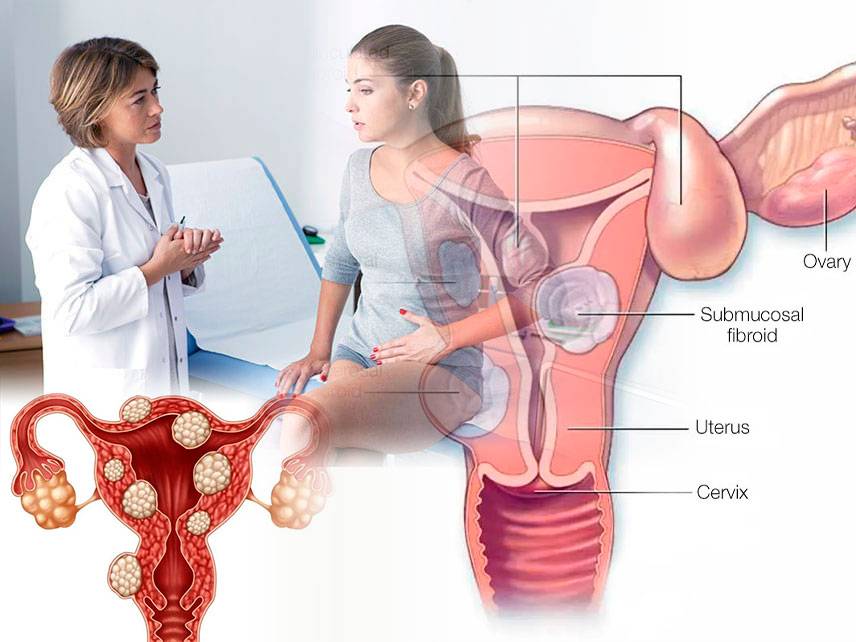Uterine fibroids are common, benign growths in the uterus. They can range in size from tiny seedlings to massive tumors, and can cause a variety of symptoms depending on their location and size. While most fibroids are asymptomatic, some can cause pelvic pain, menstrual irregularities, and fertility problems.
Signs and symptoms
The most common symptom of a fibroid is heavy or prolonged menstrual bleeding.
Other symptoms can include:
-
Pelvic pain or pressure
-
Frequent urination
-
Constipation
-
Backache or leg pain
-
Pain during intercourse
Causes
While the exact cause of uterine fibroids is unknown, they are thought to be influenced by hormones—specifically, estrogen and progesterone. Fibroids contain more estrogen receptors than normal uterine muscle cells, which may be why they grow in response to estrogen.
Risk factors
Factors that may increase your risk of developing uterine fibroids include:
-
Age: Fibroids are most common in women aged 30-50.
-
Family history: If your mother or sisters have had fibroids, you're more likely to develop them as well.
-
Ethnicity: Fibroids are more common in African-American women.
-
Obesity: Being overweight or obese increases your risk of fibroids.
Prevention
There is no sure way to prevent fibroids, but maintaining a healthy weight and eating a healthy diet may help reduce your risk.
Diagnosis
Fibroids are typically diagnosed by a pelvic exam. Your doctor may also order ultrasounds or other imaging tests to get a better look at the fibroids.
Treatment
Treatment for fibroids depends on a variety of factors, including your symptoms, your age, and whether you want to have children in the future. If fibroids are small and cause no symptoms, no treatment is necessary. If fibroids cause pain or other symptoms, treatment options include medication, surgery, and, in some cases, pregnancy.
Coping and support
If you have fibroids, it's important to find a healthcare provider who you feel comfortable with and who can help you manage your symptoms. There are also many support groups available for women with fibroids.
Complications
In rare cases, fibroids can cause complications during pregnancy, such as miscarrying, premature labor, or low birth weight. Fibroids can also occasionally become cancerous.
Living with uterine fibroids
If you have fibroids, there are several things you can do to manage your symptoms and live a healthy life. Maintaining a healthy weight, eating a healthy diet, and getting regular exercise can help. If you're planning on getting pregnant, there are steps you can take to increase your chances of a successful pregnancy.





